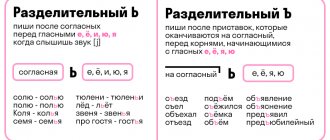April 14, 2016
Averyanova Sveta
A small child is always a mystery that mom and dad have been solving for many years. When will you be able to get the long-awaited toothless smile from your baby, hear the first word, teach him to speak, draw, read?
It’s hard to even imagine how many other questions worry young parents. And most often this happens because they know very little about child development. In fact, everything that happens to a baby from year to year is purely individual.
When will your child be able to say “mama” for the first time? Then, when he is ready for it. But since every mother sooner or later begins to worry, let’s talk about speech development in more detail.
The main stages of the formation of the speech apparatus
There are 2 main stages of speech formation: passive accumulation of words (the baby does not yet know how to speak, he only listens to the speech of his parents and other people around him and remembers, learns to reproduce words and sounds, but is not yet capable of exact repetition) and active accumulation of words (the child repeats heard sounds, can reproduce whole words, phrases, sentences).
To the question of how old children begin to speak, the answer will vary from one to three years. During this period, speech changes greatly, becomes active, meaningful, includes not only individual words, but also phrases and sentences, the complexity of which gradually increases . It is impossible to answer exactly at what months a child begins to speak the first sounds; this process is individual. If you suspect a delay in speech development, it is better to consult a pediatrician.
Stages of child speech development
A newborn can only scream and cry; He doesn't make any other sounds yet. A scream indicates to adults any need: food, drink, changing a diaper. A baby may scream if it is in pain, discomfort or scared.
However, there are also smaller stages. In the first month after birth, the baby learns to respond to speech and can reproduce any sounds in parallel with a speaking adult. Then learning to reproduce simple sounds and individual syllables occurs. Later, children learn to determine intonation and recognize by their voice who is speaking to them: mom, dad or other close relatives.
Around 8 months, repeated syllables appear in the child’s speech. A little later, children learn to speak simple words consisting of identical syllables. By the age of 1, they understand words addressed to them well and can fulfill simple requests. The vocabulary consists of several words made up of repeated syllables. After this, the vocabulary quickly increases, and the child’s speech becomes more similar to that of an adult.
Normally, children begin to speak after a year: the phrases they utter gradually become more complex. When children begin to talk, you should monitor the quantity and complexity of what is said: there are age standards, failure to comply with which doctors consider a deviation in speech development, a delay.
Why are kids silent?
Psychologists say that one should not intervene in the development process of children ahead of time. If they are silent for a year, two, or even three, this is not a reason to panic. However, parents should still pay close attention to such children. When should you worry?
It's actually simple. It is necessary to monitor not speech, but the overall development of the baby. If he doesn’t say anything, but at the same time understands everything and can explain in his own way what he wants, then everything is in order with his general development.
Why are children silent? Often adults themselves are to blame for this. If a mother communicates little with her baby and prefers to leave him alone with the TV, what can she teach him? How many months will it be wasted until the baby himself understands that he needs to talk to people?
It should be noted that the development of speech in children can be active and passive. In the first case, they learn to speak by pronouncing words on their own. In the second, they listen, observe, analyze. Those who follow the second path usually begin to actively talk in the third year of life, but within just a few months they catch up with their peers, and often surpass them.
At what age does a child say his first words?
Repeated syllables can appear in baby babble as early as 6-8 months, but calling them words is incorrect: the child only repeats the syllable many times, makes more repetitions than required, and may not understand the meaning of what was said.
At the same age, it is possible to copy surrounding sounds and attempts to imitate animals, which should also not be taken into account.
According to the standards established by pediatricians, the child begins to pronounce and speak his first words at approximately 8-10 months. First he pronounces those that consist of the same syllables: “mama”, “lala”, “dad”, etc. More complex ones are pronounced later, often after a year. It is also possible to pronounce monosyllabic words: “give”, “na”. There are many individual syllables in speech, some of which children designate surrounding objects that have names that are too long and complex for a small person.
When does a child start saying “mama” and “dada”?
Most children begin to say “mama” and “dada” between 9 and 11 months. At the same age, other similar words appear: “lyalya”, “baba”, “uncle”. When a child begins to say “mom” depends on his individual characteristics. If the mother prefers to tell the child her name, the baby grows up without a father, it may take longer, since the small child reproduces only what he heard before.
Why do children start talking late?
In children, the cause of speech development delay (SDD) can be:
- immaturity of the sensorimotor sphere;
- wrong upbringing.
If a child has a developmental disorder associated with imperfect functioning of the sensorimotor sphere (diseases, birth injuries), then correction is very difficult . In this case, only specialists (neurologist, psychologist, psychiatrist, speech therapist) can help.
When raising their baby, parents very often make mistakes that lead to developmental disorders.
The most common:
- lack of motivation;
- persistent learning;
- excess of emotions;
- lack of freedom of movement.
ZRD can be observed not only in children with whom their parents did not work. Very often the cause is overprotection. When parents, anticipating the desires of their baby, immediately give him the required thing, he just has to point his finger. In this case, the child has no motivation to develop speech. Why talk if it’s enough to just show and cry.
Very often, when teaching their child, parents demand that a word be repeated. But if the baby doesn’t want to, he begins to be silent, capricious, adults get angry at him, shout, or demand that he pronounce the word correctly.
This will not help the child; he will develop a dislike for spoken language. In addition, forcing a child to repeat any word is useless. Children remember better while playing.
The mistake of excessive emotionality occurs when the child said a word, the parents were happy and laughed. When he said it again, he did not understand the meaning of the word, did not connect the name and the subject. For him, it’s just a set of letters that evoked positive emotions in him and his parents. Children remember only those words whose meaning they understand.
Oddly enough, the lack of freedom of movement plays a significant role for the ZRR. Motor and speech activity are closely related, and this is due to the physiology of the brain. It has been noticed that children who are more active begin to talk faster. The development of fine motor skills contributes not only to the formation of speech skills, but also to learning to read and write.
Interesting experiment
The experiment was conducted with children aged 1 – 1.3 years. We created two groups. In the first group, they were constantly shown the same book, repeating the word “Book” 500 times. In another group they performed actions with this book. They said, “Give me a book,” “Take a book.” In the second case, the word “Book” was used 300 times.
Then, in the first group, various books and toys were laid out, placing between them the book that was shown. After which the experimenters asked the children to give them a book. The children immediately did it correctly, giving exactly the book that was shown to them. But when they were asked to give them another book, the children were at a loss and were given various toys. In the second group, children, after they were asked to give more books, began to give other books.
Conclusion : By manipulating with various objects, children not only remember the name better, but begin to generalize concepts.
When will the baby learn to form phrases?
Babies will speak phrases later. Boys begin to speak in sentences and phrases more often later than girls. The difference, however, is not too great, rarely exceeding 1-2 months. Most children learn their first word combinations between the ages of 1 and 1.5 years.
Sometimes a child begins to talk later: often this disorder is caused by a long-term illness. It is recommended to visit a child psychologist or neurologist if speech disorders are noted.
If the child does not speak
Each baby has its own development path. It depends on heredity, temperament and character, gender, developmental conditions and environment, daily routine and even nutrition. Some children start speaking later than others, and there is nothing wrong with that. This behavior is often typical for calm and phlegmatic children.
Experts note that boys, on average, begin to speak one to two months later than girls, but then catch up in a short time. In a bilingual environment, when two or more languages are spoken in the family, it is more difficult for the baby to perceive information, so he may start speaking later. In addition, the development of speech is negatively affected by a monotonous environment and insufficient communication with people. With a lack of communication and fresh impressions, the baby simply has nothing to talk about.
A serious reason for this behavior is stress, lack of emotional contact with parents and various psychological problems. If a child rarely sees and communicates with his mother, this negatively affects the emotional state and psychological development of the baby. Young children acutely feel tension and conflicts in the family. This also negatively affects the development and well-being of the baby.
The most serious causes are severe speech disorders, including aphasia, dysarthria, sensory and motor alalia. Medical problems include congenital anomalies and anomalies of intrauterine development, genetic diseases, and deafness. Such diseases require professional intervention and monitoring.
Achievements up to six months
During the first month of life, the baby learns to respond to the speech of adults. Often children walk parallel to the conversations of adults. This happens especially often if parents talk to the baby and address him. Begins to distinguish intonations: the mother’s affectionate address helps to calm down faster, screams and aggression are frightening and can cause crying.
By 3 months, the first syllables appear. They are simple, consisting of a small number of sounds. You can hear “ua”, “gu”, “ga”.
By 4-5 months, baby talk acquires an emotional connotation. The child does not just sing or squeal: you can distinguish the intonation with which the sounds are pronounced. Reacts well to adult speech, understands intonation better; When a child hears a sound, he can turn his head correctly in the direction of its source.
At the age of six months, children recognize their parents' voices well, even with a large number of people around. Syllables vaguely reminiscent of “ma” and “pa” slip into speech. They will become clearer only closer to 7 months.
School age
If before this age it was not possible to get rid of the habit of foul language, then the child will learn to control it and adapt it to the society in which he finds himself.
At home he will stop swearing, but in yard games he may well fight and swear, “while his parents are not looking.” Appearing like an adult among peers is a common way of asserting oneself.
You can show your preschooler other ways to be an adult: controlling expenses, helping around the house, participating in decision-making, the right to make independent choices (furniture, colors, holiday gifts). Conversations, therapeutic tales, working with a psychologist, changing the environment - all means can be used. But the best of them is your own example.
Let dad “give up” swearing with his son on the terms of competition. Or eavesdrop on your child’s street dialogue, and in the evening at dinner respond without hints: “One of the kids swore so terribly today when you were playing! I heard it by chance and thought: “It’s so good that our boy doesn’t know such words!” With conscientious children, this technique almost always works.
What can a baby say before 12 months?
By 7 months, the syllables “ma”, “pa”, “ba” are clearly distinguishable and pronounced clearly. The child actively imitates animals (barking dogs, meowing cats and other sounds), well understands simple requests addressed to him (“give”, “bring”, “show”). Knows the names of most surrounding objects, although he is not yet able to name them.
At 8 months, babies actively speak in syllables. The sounds used are “a”, “g”, “k”, “b”, “p”, “u”, “m”, “e”, “n”.
9-11 months is the age at which the baby expands its vocabulary. Can pronounce up to 10 simple words consisting of one syllable or 2 repeated ones.
Not all children's words can be found in adult speech. Little ones often simplify complex names into onomatopoeias: they call a dog “av-av”, a car “bi-bi”, a train “too-too”. The child understands what he sees and can show an object if an adult names it, but is not able to reproduce a complex word on his own.
All babies are different
Very often, parents compare their baby with other children. They are scared and hurt by their pride when someone turns out to be better and knows more. They start trying to teach the baby to pronounce a word, and get angry if he doesn’t succeed. This is a wrong and harmful practice.
The fact is that you cannot teach to speak; mastering speech is a very complex mental process. But you can develop the baby, because children learn about the world through their parents, communication with them, classes, reading books, games. It doesn't really matter when they say a certain word. The main task of parents is to teach their children to understand what they want from them and to expand their vocabulary.
What does a baby say from one year to two?
At the age of one to one and a half years, children introduce phrases into speech. The child begins to understand shapes and colors well, recognizes animals and household objects, and can point to fairy-tale characters. Speech is quickly enriched: the child learns to speak in sentences that gradually become longer.
Closer to 2 years, the child will begin to ask and formulate questions. Gradually understands more and more complex requests, better describes what he observes around him.
When does conscious speech begin to form?
The baby begins to consciously pronounce words when he reaches one year of age. Elementary words (“mom”, “dad”) begin to be used in context (for example, “give me mom”). But this is only the initial stage on the path to becoming conscious speech. Then comes a period of active development of passive and active vocabulary, which will allow the baby to associate objects and clearly express his opinion or desire.
A child learns to formulate simple sentences at the age of one and a half years. He already has enough knowledge to form simple phrases (for example, “the doll fell”). The appearance of the first verbs is observed, which may be incorrectly compared with the genders of nouns and pronouns. It’s quite normal to hear the sentence from your baby’s lips: “Sasha is playing” (instead of: “I’m playing”).
When a child reaches the age of two, he already has 50 words in his active reserve, which he builds into sentences (for example, “I went for a walk” or “I want to play”).
At the same time, the baby perfectly understands the speech of adults, remembers and reproduces short rhymes and nursery rhymes. Further, his vocabulary will rapidly expand, which will allow him to express his thoughts in a more complete form.
See also:
How to teach a child to speak at 2 years old and how many words should he know?









